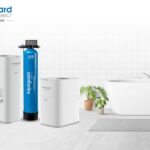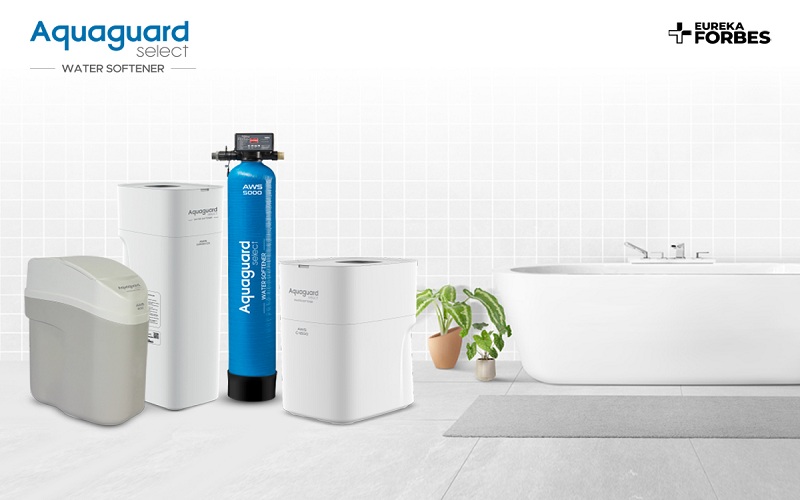Hard water is a common household concern in many regions worldwide, affecting the quality of water and the lifespan of appliances. The presence of excess minerals such as calcium and magnesium in water is responsible for the hardness that results in limescale buildup and poor appliance performance. To combat this issue, people often consider natural solutions or water softeners. This article will explore the effectiveness, advantages, and disadvantages of both methods, to help you make an informed decision about the best approach for your home.
Natural Solutions for Hard Water
Natural solutions for hard water typically involve household items or additives that can help reduce the impact of minerals in the water. While natural solutions are eco-friendly and easily accessible, their effectiveness is limited. They often require continuous manual intervention and may only provide temporary relief from hard water problems. The right way to deal with hard water is using a water softener.
Water Softeners: A Comprehensive Solution
Water softeners are specially designed appliances that remove minerals from water through ion exchange, providing a long-lasting and comprehensive solution to hard water problems. Some advantages of using water softeners are:
- Improved appliance performance: Softened water can improve the efficiency of water-using appliances such as washing machines, dishwashers, and water heaters, saving energy, and prolonging their lifespan.
- Reduced limescale buildup: Water softeners can prevent the formation of limescale deposits on pipes and appliances, reducing maintenance costs and the risk of damage.
- Enhanced cleaning: Softened water can improve the effectiveness of soaps, and detergents, resulting in cleaner laundry, dishes, and skin.
Water softener price can vary depending on the type, size, and features of the system. Some popular water softeners available in the market are by Aquaguard Select which offer a range of advanced water softening solutions designed to suit different household requirements. These water softeners include features like automatic regeneration, adjustable hardness settings, and space-saving designs.
- Aquaguard Select AWS C-3500 DX Water Softener is a completely automatic water softening machine for multi-story buildings that uses ion-exchange technology to soften water with hardness levels of up to 2050 ppm. You can remove hard water, which can cause hair loss, dry itchy skin, and stains on sinks, bathroom fixtures, and appliances. It is an excellent choice when selecting a water softener for a building. The machine has multiple regeneration modes and a holiday mode too. It comes with IntelliMix technology and efficient design.
- If you need a water softener that works well at home, Aquaguard Select AWS C-2500 Water Softener is a complete package as it uses ion-exchange technology to soften water with hardness levels of up to 1850 ppm. It is a fully automated regeneration device that starts working once set. With the LCD Display Panel, the current settings make it easy to read. The auto-setting lock ensures that if the softener’s control is lost, internal memory will maintain its previous setting. While it is good to go, it is a device and would require timely checkups.
While natural solutions can provide temporary relief from hard water problems and are eco-friendly, their effectiveness is limited, and they require continuous manual intervention. On the other hand, water softeners offer a comprehensive and long-lasting solution to hard water issues, improving water quality, appliance performance, and cleaning efficiency. Although the initial water softener price may be higher than natural solutions, the long-term benefits and savings on maintenance, energy, and appliance replacement costs make water softeners a worthy investment.

 How Can Dubai Event Managers and Stand Contractors Improve Exhibitions?
How Can Dubai Event Managers and Stand Contractors Improve Exhibitions?  Digital Marketing Services: Strategies for Small Businesses on a Budget
Digital Marketing Services: Strategies for Small Businesses on a Budget  Navigating The Path To Excellence: Finding The Best Ivf Center In Rajasthan
Navigating The Path To Excellence: Finding The Best Ivf Center In Rajasthan  What are the very basic steps to be taken into account for boosting JavaScript security?
What are the very basic steps to be taken into account for boosting JavaScript security?  Is it Better to Opt for a Natural Solution or Install a Water Softener for Tackling Hard Water at Home?
Is it Better to Opt for a Natural Solution or Install a Water Softener for Tackling Hard Water at Home?  Weaverham’s Exclusive Collection of Engagement Rings
Weaverham’s Exclusive Collection of Engagement Rings 